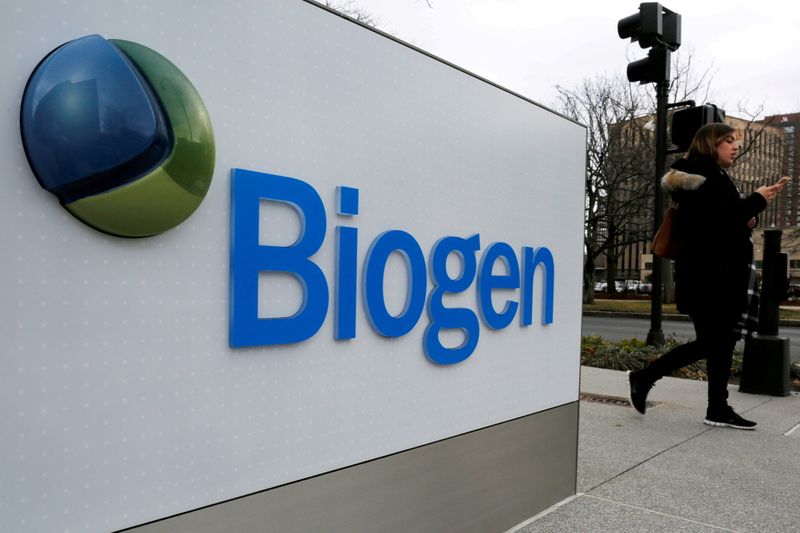(Reuters) -A European Medicines Agency panel voted against approval of Biogen Inc’s Alzheimer’s drug Aduhelm, in another blow to prospects for a treatment already grappling with a slow rollout in the United States.
Shares of Cambridge, Massachusetts-based Biogen, which announced the negative vote on Wednesday, fell $3.17, or 1.2%, to close at $258.38. The company’s shares have dropped about 37% since Aduhelm was approved by the U.S. Food and Drug Administration in early June.
The panel recommendation will be taken into consideration by the EMA, which is not bound to follow, but usually does.
“Given the existing data and controversy attached to the drug, we see no reason why there would be a divergence (in EMA’s decision),” said Wedbush analyst Laura Chico.
Loss of European sales would effectively wipe away 40% of potential future Aduhelm revenue, RBC Capital Markets analyst Brian Abrahams said in a research note.
Only one of Biogen’s two pivotal trials showed that Aduhelm can slow the rate of cognitive decline for Alzheimer’s patients and the FDA’s decision to approve the drug was controversial.
Some members of an advisory panel to the U.S. regulator resigned in protest and several prominent treatment centers have publicly said they will not offer Aduhelm to patients.
On Monday, Biogen said its research chief Alfred Sandrock, who led development of the Alzheimer’s disease drug, was leaving the company after a 23-year stint, a move that analysts called abrupt.
Aduhelm, the first new treatment for the memory-robbing disease in nearly 20 years, has seen slow uptake in the United States as hospitals and health insurers await a decision on coverage by Medicare, the government health plan for people over age 65.
The EMA’s advisory panel decides what the regulator’s recommendation on treatments, vaccines or devices should be.
The panel, Committee for Medicinal Products for Human Use, will take a final opinion on Biogen’s Aduhelm at a December meeting, Biogen said.
Once the EMA has endorsed or refused a product, the executive body of the European Union, the European Commission, makes the final and formal decision which typically matches what the EMA has said.
(Reporting by Manas Mishra and Pushkala Aripaka in Bengaluru; Editing by Anil D’Silva, Shinjini Ganguli and Richard Pullin)























